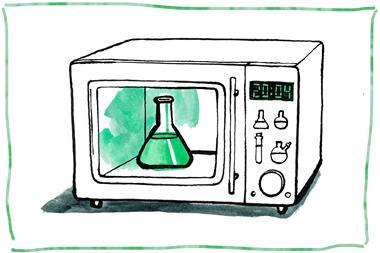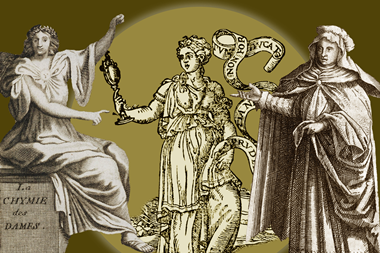Fans of the non-classical cation controversy will be saddened to learn that it has produced its last publication. At least that’s according to Ken Houk at the University of California Los Angeles who says his recent paper is the ‘final chapter’ in the saga. The debate itself raged for two decades in the mid-20th century, and centred on whether bonding in the 2-norbornyl cation involved two electrons shared between three atoms.
It’s hard to believe that lengthy episode could still require a postscript: even by the time a crystal structure provided definitive proof in 2013 (and which Houk’s work confirms), the argument had been decided long since in the minds of most chemists.
So it is with many scientific debates: they are settled by consensus before the weight of evidence eventually arrives. That is contrary to the popular perception of science progressing inevitably through the steady accumulation of facts. Indeed, the fact that controversies exist at all can appear to be a failure of the process in which ‘incorrect’ ideas are exposed and rejected on a journey toward the truth.
Yet debates and disagreements are useful and even desirable, and not just because they lead us to better understanding – they are the fabric of how science works.
Controversies reveal that science is an inherently human endeavour, influenced by character and temperament
We recently covered a new debate that has been developing around the phenomena observed in water microdroplets. These tiny blobs have been shown to have impressive catalytic effects and they promote unusual reaction outcomes that could have fundamental and practical implications for chemistry.
But as our story shows, researchers are divided over how to explain these observations and the extent to which they exist. As they try to prove and disprove each other’s theories they are pushing the limits of analytical science and challenging our models of nature.
The latest article in our 20th anniversary series also looks a relatively recent controversy, picking up on the story of microwave chemistry.
In 2004 this was a literal and figurative hot topic with chemists excited by the possibilities offered by rapid heating. A debate soon developed around whether microwave-assisted reactions were faster simply because they were hotter, or because some other, exotic effect was at play. That came to a head around 10 years ago with the majority settling on the mundane explanation, but there are still holdouts.
It’s tempting to view such controversies as temporary embarrassments that are eventually eased with better experiments or more data. Yet as the philosopher William Goodwin noted in a review of the norbornyl debate, controversies reveal that science shouldn’t be viewed as an ‘infallible algorithm for reading the Book of Nature, but rather as a series of strategic tradeoffs for generating significant knowledge’.
Plus, the debates themselves are often as useful as the knowledge to which they might lead. They push greater experimental and intellectual efforts, and they give us insight into the process of science. They also reveal that science is an inherently human endeavour, influenced by character and temperament (a fact often carefully obscured in academic writing).
Admitting that science is human, haphazard or uncertain can be uncomfortable, however. It can be hard to communicate science’s contingent nature without appearing to undermine its authority. Invoking the scientific consensus can be persuasive in gaining public trust, for example, but disagreements and disputes can erode that confidence by seeming to lift the curtain on a shabby secret.Worse, bad actors can exploit and distort that apparent inconsistency to cast doubt on science or to push their own agendas with alternative ‘facts’.
Being more open about how science works, then, not only helps us to communicate its nuances but also to learn from it.
For chemists, controversies and debates are often reduced to the status of folklore – allegorical anecdotes that show science always gets it right in the end. But there is much more to be gleaned from the historians and philosophers who have learned from our history. Those who don’t remember chemistry’s past are doomed to repeat it.

















No comments yet